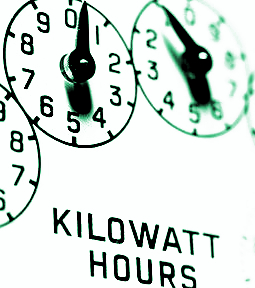PM reveals new power plan
 The Federal Government says its new energy plan brings much-needed certainty, but some say it is shirking its own role.
The Federal Government says its new energy plan brings much-needed certainty, but some say it is shirking its own role.
Prime Minister Malcolm Turnbull has announced plans for a National Energy Guarantee (NEG), which will require electricity retailers to maintain “dispatchable” power for emergency use, while also cutting the electricity sector’s greenhouse emissions by 26 per cent relative to 2005 levels by 2030.
Mr Turnbull said the plan will save the average household up to $115 a year after 2020 and ensure reliability.
The NEG is markedly different to the Clean Energy Target recommended in chief scientists Alan Finkel’s review of the market.
It requires retailers meet two targets - a reliability guarantee and an emissions guarantee.
The reliability measures are designed to make retailers keep some electricity from ‘dispatchable sources’ available for times of shortage. The level of that reserve power will vary from state to state.
While it is possible that reliability will be ensured by the use of renewable options, like pumped hydro storage, the lack of any official mandate suggests the target will be met by the cheapest means available - usually gas.
The COAG Energy Security Board says: “This reliability guarantee would require retailers to hold forward contracts with dispatchable resources that cover a predetermined percentage of their forecast peak load”.
It is likely to be achieved through the use of cap contracts, which come into play when high demand pushes energy prices over a certain pre-agreed level.
When this happens, generators with flexible dispatchable power guarantee extra energy, paid for by a daily premium from retailers.
The emissions guarantee seeks to encourage retailers to drive down the power sector’s greenhouse emissions by 26 per cent on 2005 levels by 2030.
Electricity is responsible for over 30 per cent of Australia’s total emissions, and while research has shown that Australia’s electricity sector can achieve emissions cuts of up to 60 per cent, the 26 per cent target could force other sectors to make greater emissions reductions sooner, if Paris Agreement goals are to be met.
Critics say the plan fails to take advantage of the declining price of renewables, by introducing price incentives that are as likely to favour coal and gas at least in the short term.
The guarantees are likely to see retailers buy more than they need from coal generators, propping them up longer than is necessary for the transition to clean power.
“The reality is that to solve either the reliability, affordability or emissions challenge, all three have to be tackled,” says Ben Oquist, executive director of the Australia Institute.
“You cannot fix one without fixing them all. Businesses have long since factored in a future carbon price or carbon regulation. But investors seek more certainty than that, so they want to see the government confirm direction with a plan.
“More certainty means more investment. More investment means more supply and, as any economist tells you, more supply means lower prices for consumers and reliability increases.
“If, as the Prime Minister says, our energy policy needs to be driven by economics and engineering, then our politics need to catch up.
“At the moment we are headed for a more expensive, dirtier energy system instead of a cheaper, cleaner one,” he concludes.







 Print
Print